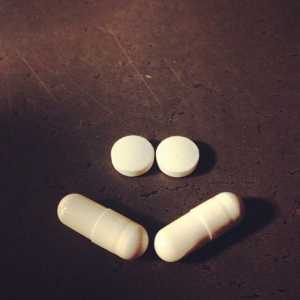Author Interviews, Calcium, Geriatrics, JAMA, Vitamin C / 05.01.2018
Vitamin D and Calcium Supplements Did Not Lower Fracture Risk In Community-Dwelling Adults
MedicalResearch.com Interview with:
 Dr Jia-Guo Zhao
Tianjin Hospital
Department of Orthopaedic Surgery
Tianjin, China
MedicalResearch.com: What is the background for this study?
Response: The increased social and economic burdens for osteoporotic-related fractures worldwide make its prevention a major public health goal.
Calcium and vitamin D supplements have long been considered a basic intervention for the treatment and prevention of osteoporosis. Survey analysis showed that 30–50% of older people take calcium or vitamin D supplements in some developed countries. Many previously published meta-analyses, from the high-ranking medical journals, concluded that calcium and vitamin D supplements reduce the incidence of fracture in older adults. And many guidelines regarding osteoporosis recommend calcium and vitamin D supplements for older people. The final aim for these supplements is to prevent the incidence of osteoporotic-related fracture in osteoporosis management.
(more…)
Dr Jia-Guo Zhao
Tianjin Hospital
Department of Orthopaedic Surgery
Tianjin, China
MedicalResearch.com: What is the background for this study?
Response: The increased social and economic burdens for osteoporotic-related fractures worldwide make its prevention a major public health goal.
Calcium and vitamin D supplements have long been considered a basic intervention for the treatment and prevention of osteoporosis. Survey analysis showed that 30–50% of older people take calcium or vitamin D supplements in some developed countries. Many previously published meta-analyses, from the high-ranking medical journals, concluded that calcium and vitamin D supplements reduce the incidence of fracture in older adults. And many guidelines regarding osteoporosis recommend calcium and vitamin D supplements for older people. The final aim for these supplements is to prevent the incidence of osteoporotic-related fracture in osteoporosis management.
(more…)
 Dr Jia-Guo Zhao
Tianjin Hospital
Department of Orthopaedic Surgery
Tianjin, China
MedicalResearch.com: What is the background for this study?
Response: The increased social and economic burdens for osteoporotic-related fractures worldwide make its prevention a major public health goal.
Calcium and vitamin D supplements have long been considered a basic intervention for the treatment and prevention of osteoporosis. Survey analysis showed that 30–50% of older people take calcium or vitamin D supplements in some developed countries. Many previously published meta-analyses, from the high-ranking medical journals, concluded that calcium and vitamin D supplements reduce the incidence of fracture in older adults. And many guidelines regarding osteoporosis recommend calcium and vitamin D supplements for older people. The final aim for these supplements is to prevent the incidence of osteoporotic-related fracture in osteoporosis management.
(more…)
Dr Jia-Guo Zhao
Tianjin Hospital
Department of Orthopaedic Surgery
Tianjin, China
MedicalResearch.com: What is the background for this study?
Response: The increased social and economic burdens for osteoporotic-related fractures worldwide make its prevention a major public health goal.
Calcium and vitamin D supplements have long been considered a basic intervention for the treatment and prevention of osteoporosis. Survey analysis showed that 30–50% of older people take calcium or vitamin D supplements in some developed countries. Many previously published meta-analyses, from the high-ranking medical journals, concluded that calcium and vitamin D supplements reduce the incidence of fracture in older adults. And many guidelines regarding osteoporosis recommend calcium and vitamin D supplements for older people. The final aim for these supplements is to prevent the incidence of osteoporotic-related fracture in osteoporosis management.
(more…)

